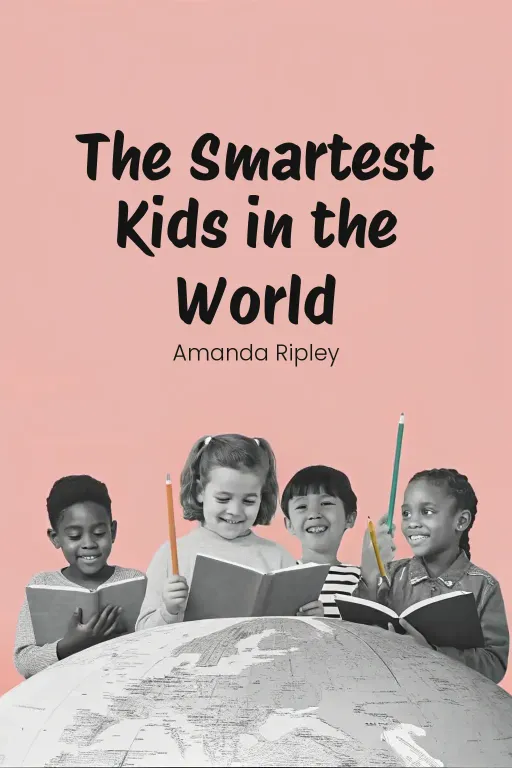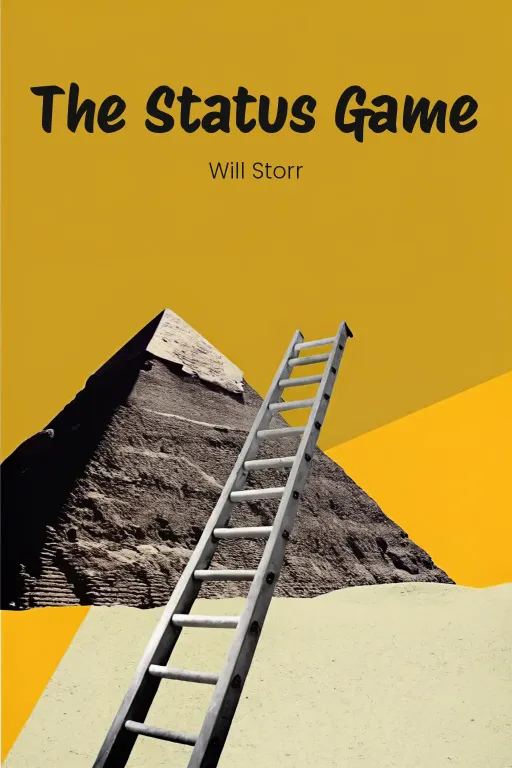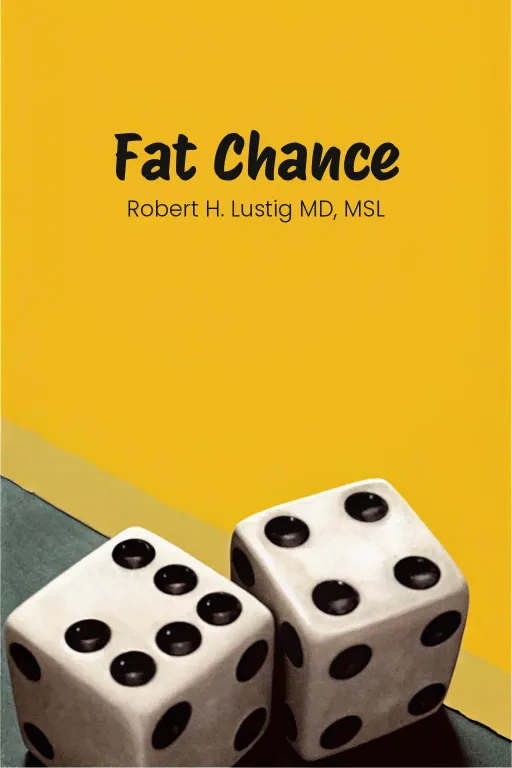
Niceness Reboot: The Simple Fix Everyone Needs
Podcast by Civics Decoded with Thomas and Grace
Introduction
Part 1
Thomas: Hey everyone, welcome back! Today we're tackling something super relatable: being nice. Seriously, when was the last time you really thought about just saying "thank you," or, you know, letting someone merge in front of you in traffic? It's those little things that either make the world a bit brighter, or... well, not so much. Grace: Brighter? Thomas, I think you're being optimistic. Have you been outside lately? It's a free-for-all out there! I'm with Whoopi Goldberg, who basically asked what we're all thinking: "Is it just me, or is it nuts out there?" Thomas: Exactly! In her book, Whoopi uses her signature humor to address this very issue—the decline of basic civility in our crazy, hyper-connected world. She talks about how technology has fueled everything from online trolling to, you know, that constant need to overshare. But she also points out the simple, everyday rudeness we see all the time. The thing is, she doesn't just complain, she actually challenges us to be better. Grace: Right, personal accountability – easier said than done. It's like when the dentist tells you to floss more. We know we should, but, well... life happens. Thomas: That's why we're diving into this today. We're going to break down Whoopi's arguments into three main sections. First, we'll look at the root causes of incivility – how technology, entitlement, and good old-fashioned ego play a part. Then, we'll explore the impact of all this rudeness on our relationships and communities. And finally, we'll talk about Whoopi's tips on how to bring some civility back – little changes that could really make a difference, if we actually try them. Grace: So, basically, being polite isn't just about saying the right thing. It's apparently the key to saving humanity. Let's see if we can figure out how, without losing our own sanity in the process.
The Erosion of Civility in Modern Society
Part 2
Thomas: Okay, let’s dive right into what Whoopi calls “the civility crisis.” I think it really boils down to how technology has reshaped how we interact. Social media, which, you know, was supposed to connect us, has somehow become this amplifier of incivility. Grace: Exactly! It's like the volume got cranked up too high, and now everyone's just yelling. Look at Twitter—err, X, whatever it is now. It feels less like a place for real discussion and more like a digital… well, you know. Thomas: Right, and Goldberg also points out how anonymity makes it worse. People hide behind fake profiles and say things they’d never say in person. It creates this illusion of there being no consequences. She talks about trolling, people intentionally trying to provoke others. Grace: Yeah, trolling is like… a dark art for some people, but it makes things pretty unpleasant for everyone else. And think about the impact on public figures. Goldberg herself has been a target—people attack her views, but also her appearance, her personality. It seems like once you're in the public eye, anything goes. Thomas: It’s disturbing how these attacks become “malicious abuse,” as Goldberg puts it. It's not just disagreement anymore; it’s about tearing someone down. And because it’s online, there’s this disconnect. When did calling someone an idiot online become normal? Grace: Good question. Beyond just the trolling, Goldberg also talks about how distractions have eroded civility. Like, have you ever been on the phone with someone and suddenly you realize they're typing away or scrolling through their phone? Thomas: Oh, constantly! And Goldberg really nails it when she says that multitasking takes away from real human connection. The person you're with—or on the phone with—becomes less important than what's on your screen. Grace: It's funny—or tragic—how common that is now. We’ve almost accepted it. This constant juggling of focus doesn’t just ruin conversations; it tells the other person they're not a priority. It’s rude, but it’s also dehumanizing, right? Thomas: Exactly. And that leads to how this shift affects not just our personal relationships but society as a whole. Disagreements used to spark curiosity and a chance to see things differently. Now, conflict is instant and defensive. We just want to be “right” instead of understanding. Grace: Totally. Just flip on any news channel or jump into a Facebook comment section. It’s like everyone’s performing for Debate Club: Gladiator Edition. Whatever happened to listening? Thomas: Goldberg has a great point: when arguments turn into name-calling, the real issue is lost. She talks about how even simple disagreements, like around the dinner table, used to help build bridges. People left those discussions knowing more, even feeling energized by different viewpoints. Grace: Now you’ve got “keyboard warriors” tossing around insults at the first sign of disagreement. It’s all heat and no light, as they say. Thomas: And that has a ripple effect. Goldberg says that when hostile communication is everywhere, it creates a culture of division. It becomes “You're wrong, therefore you're bad," not just "I disagree with you." Grace: Which brings us to the media’s role. Goldberg's critique of reality TV was spot-on, I thought. These shows are designed to create conflict for entertainment. And people start to see that as normal. Thomas: Yes, and it’s not just TV. Social media algorithms push outrage because it gets more clicks. Thoughtful posts don’t go viral as fast as a sensational clip. Goldberg really emphasizes how this simplifies people, making them into caricatures. Grace: I liked her example of people thinking they know her just from her public image. The reality is much more complicated—she's pro-choice but dislikes extreme positions, an opinionated person who still values, you know, being respectful. It’s the nuance that's disappearing, Thomas. Thomas: Absolutely, Grace. And once we lose that nuance, empathy goes with it. Without empathy, it’s much harder to bridge divides or even just get along. Grace: Okay, so we’ve identified the problem: incivility fueled by anonymity, distractions, polarized media, and ego. But what do we do about it? Goldberg says it comes down to personal responsibility, right? Really listening, putting our phones down at dinner, and, yeah, not calling people names online. Thomas: Exactly! She suggests small, consistent changes—approaching disagreements with curiosity, practicing good manners, and just being considerate. It’s not revolutionary, but it’s essential. Grace: Simple, sure, but also a little daunting. Fixing this isn't like flipping a switch. It's going to take a million little actions, repeated every day, to fight back against this slide. Thomas: Well, that’s the challenge, isn’t it? Building civility one step at a time in a world where being the fastest to click wins.
The Societal Impact of Modern Behavior
Part 3
Thomas: Understanding the root causes of incivility, naturally, leads us to consider its broader societal impact. Whoopi Goldberg doesn't just stop at unveiling the origins of our bad behavior—she “really” shifts focus to what these patterns mean for our communities, our relationships, and even our mental well-being. This next part is all about how those rude, dismissive, or self-centered acts ripple outward. Grace: Right, because it's a misconception to think these things are harmless—the old "sticks and stones" cliché. Turns out, words, actions, and even silence can shake up entire social ecosystems. So, where do we start unpacking all of this? Thomas: Let's start with Goldberg's take on bullying, and not the kind people brush off as a "playground problem." She treats bullying as a systematic societal issue, deeply ingrained and impactful well into adulthood. Her comparisons are blunt but effective. Take her analogy of bullies as "terrorists," for example. Grace: Whoa, bold move, calling bullies "terrorists." Though, now that I think about it, it kind of makes sense. Bullies thrive on fear and create this oppressive environment where their victims, and even bystanders, are constantly on edge. The power dynamics they set up go far beyond the immediate insult or shove, don’t they? Thomas: Exactly. And what's striking is her focus on adults’ roles in perpetuating bullying cycles. Kids model what they see—parents losing it over something trivial, snapping at servers in restaurants, or being intentionally competitive with neighbors. Whether it's subtle or overt, those moments “really” shape how kids process power, dominance, and respect, wouldn’t you agree? Grace: So basically, when parents scream at a referee during their kid's soccer game, they're teaching a masterclass in ‘How to Ignore Empathy and Go Full Alpha’? Thomas: Unfortunately, yes—and it’s not just parents either. Teachers, authority figures, even peers—kids are sponges for social cues. Goldberg highlights how addressing bullying at its root requires a collective effort. Schools implementing peer-support programs, encouraging bystanders to step in safely, or even fostering dialogues about empathy, can significantly reduce the power imbalance typical of these situations. Grace: It's a start, but what about workplaces? Nothing says “team-building nightmare” like realizing your boss was probably a playground bully who never got called out. Thomas: Precisely. Goldberg emphasizes how unaddressed bullying bleeds into adult settings. Toxic hierarchies or office power plays often mirror the unchallenged behavior learned in youth. Disrupting this cycle doesn't just empower kids—it creates space for healthier relationships later in life, doesn't it? Grace: Okay, so bullying leaves massive scars, reshapes human dynamics, and teaches kids all the wrong lessons. Check. What’s next? Let me guess: the internet plays a starring role here too? Thomas: You've nailed it. Goldberg dives deep into the privacy issues fueled by our digital world—the ways social media has normalized oversharing and how that impacts authenticity, mental health, and public discourse. Grace: Right, the old "If it wasn't on Instagram, did it even happen?" syndrome. People don't just share outings or moments; they curate them, crafting this weird ultra-idealized version of life. It’s all a bit performative, isn't it? Thomas: Exactly—and that curation, Goldberg argues, comes at a psychological price. When the goal shifts from documenting memories to seeking external validation through likes, shares, or comments, you start equating your self-worth with those metrics. It's a toxic loop, “really”. Grace: Plus, there's the anonymity thing. The internet, for all its wonders, basically gave people masks. And not cool superhero masks—more like, villain-in-the-shadows type. Say something horrible, ghost the consequences. Thomas: Troll culture at its worst. Goldberg highlights how the lack of accountability enables people to lash out in ways they'd never dare to in real life. And the venom isn't confined to public figures or celebrities, though they bear a large brunt. Everyday users—kids, teens, adults—find themselves at the receiving end of this kind of hostility. The damage isn't just fleeting either. Grace: Yeah, because once it's online, it's kind of forever. The emotional scars from those attacks seep into real life, creating stress, anxiety, insecurity. And worst of all, it builds this culture of hostility. Suddenly, being civil becomes the exception, not the rule. Thomas: That's why Goldberg champions more extensive digital literacy. She believes understanding the weight of your online actions—ensuring what you share, like, or post fosters respect rather than harm—could pave the way for a healthier digital space, don’t you think? Grace: Okay, so the internet feels increasingly like a minefield. What about offline—public spaces? Surely we're doing better there? Thomas: Hate to break it to you, but not “really”. Goldberg paints a vivid, almost alarming, picture of the decline in public etiquette. Whether it's someone blaring music on public transportation or grooming themselves in shared spaces, she's quick to point out how individual selfishness erodes the collective experience. Grace: The subway nail-clipping bit, right? I couldn't stop rolling my eyes—until I realized how it's almost become normal to witness that kind of behavior. I mean… who does that? Thomas: It's those small but telling moments. Cutting queues, shouting into phones, ignoring basic courtesies—they may seem minor in isolation, but they add up, creating an environment rife with irritation and disengagement. Grace: And here I was thinking the biggest public-space drama was people taking up too much armrest during flights. Thomas: That too! Goldberg calls for a return to mindfulness in these shared environments. Simple acts—like waiting your turn or keeping noise levels respectful—may sound trivial, but they carry an outsized impact in maintaining social cohesion. Grace: So, essentially, stop being the person every other commuter silently glares at? Got it. Thomas: Exactly. But what's most compelling is her argument that these small shifts, when modeled consistently, can inspire others to do the same. You're not just fixing your behavior; you might indirectly influence those around you as well. Grace: Elevators might become less awkward, trains less chaotic—hey, there’s hope yet. But it still feels like such an uphill battle when these bad habits are so deeply ingrained, both online and offline, don’t you feel? Thomas: True, but that's Goldberg's core message: the journey starts with each of us. If we want society to heal its fractures, rebuilding civility—whether in how we speak, listen, or act—is non-negotiable. Grace: Fair. So, for now, I'll commit to fewer snarky retorts on Twitter. Baby steps, Thomas. Baby steps.
Restoring Civility Through Personal Accountability and Action
Part 4
Thomas: So, recognizing these impacts really gets us thinking about how to actually restore some civility, doesn't it? Goldberg's diagnosis of the problem is definitely an eye-opener, showing us just how widespread this “rudeness” thing is. But her solutions? They're like a roadmap back to decency. And honestly, after hearing all those stories about trolling, toxic multitasking, and general public chaos, I'm more than ready for some good news. What's her plan of attack here? Grace: Okay, so what you're saying is fixing society is all about focusing on the small stuff, right? What exactly are we talking about? Thomas: Exactly! Goldberg argues that restoring civility boils down to reclaiming personal accountability and taking concrete steps. Think showing respect, being empathetic. It’s rediscovering basic human interactions – gratitude, truly listening, leading by example. These "little things," as she points out, are actually huge. They create a ripple effect that changes culture. Grace: Okay, so we’re talking about fixing the world one "thank you" at a time? That feels… overly optimistic, Thomas. Thomas: I know, right? Sounds a bit simplistic. But picture this: you're in a packed coffee shop, totally rushed, the barista looks completely overwhelmed, and everyone's scowling. Instead of adding to the negativity, you smile and say, "Hey, thanks for taking the time to make this – I really appreciate it." Small gesture, right? Almost insignificant. Grace: Sure, Thomas, but realistically, what’s that going to change in the grand scheme of things? Thomas: Well, maybe that barista, who's about to lose it, suddenly feels seen, appreciated. Their mood lifts – maybe they give the next customer a genuine smile or are just a bit warmer. And that customer might soften up too. Civility spreads, one little interaction at a time. Goldberg's point is that kindness isn't just politeness; it's contagious when practiced intentionally. Grace: So it’s less about grand gestures and more about starting a chain reaction of decent behavior? Thomas: Precisely. No need for anything outlandish. Even keeping a gratitude journal, like Goldberg suggests, trains your brain to focus on the positive. A few minutes writing down small moments of connection – a stranger helping you with groceries, someone holding a door – makes gratitude a habit. And that mindset probably spills over into your own interactions. Grace: Alright, so we’ve covered gratitude. What about listening? You mentioned how Goldberg emphasizes conversational focus. Thomas: Oh, she's pretty strict about that, and rightly so. Active listening is key to real connection, but it's surprisingly rare in this distracted world. We often listen on autopilot or half-listen while already planning our brilliant response. But “really” listening means being fully present – ditching distractions, truly understanding what's being said, and acknowledging the other person's viewpoint. Grace: Which sounds great in theory, but you know how it goes. Someone starts venting about a rough day at work – and what’s our first instinct? To jump into fix-it mode. Give advice. Solve the problem. But Goldberg’s point is…? We just need to listen sometimes? Thomas: Exactly! Responding with empathy rather than quick solutions changes the whole dynamic. Something as simple as saying, "That sounds really tough – can you tell me more?" instead of "Here's what you should do" validates their experience builds connection. It's about showing them you care, not just fixing their problems. Grace: So, putting away the smartphones during conversations and actually paying attention could go a long way toward fighting this tech-induced ADD we’ve all developed? Thomas: That's her stance. Goldberg even suggests paraphrasing as a way to practice active listening – repeating back what the other person said in your own words. Like, "So it sounds like you're feeling overwhelmed because of X?" It makes sure you’re both on the same page and shows that you're actually paying attention. After all, doesn't it feel good to be truly heard? Grace: Alright, I see how that fits in. But what about actively modeling good behavior? I mean, let’s face it – just because you’re civil doesn’t guarantee the world around you will be. Thomas: That’s true, but Goldberg believes leading by example has more impact than we think. Take public spaces, for instance. She talks about a parent at a soccer game who decides not to join the screaming crowd and lets cool talk. Instead, they praise their kid’s effort, encourage good sportsmanship, and calm things down after a bad call. One calm voice in a sea of craziness inspires others to rethink their behavior. Grace: Ah, the famous ripple effect. I see that, though some parents at those games seem beyond hope. But okay, assuming this works, where do we even begin? Thomas: We start anywhere and everywhere. Public spaces are Goldberg's classic example – small things like letting someone go ahead in line or not blasting music in public areas send a message. Even tiny improvements in manners, like saying "hello" or holding a door, push back against the culture of rudeness. Grace: So it’s about creating little oases of civility in places that are normally chaotic. What’s next – civility workshops? Thomas: Actually, it's not that far off! Goldberg’s idea of weaving these principles into schools, workplaces, and homes through programs like "Manners Moments" or giving small rewards acts of kindness is brilliant. Imagine a school where kids learn early on that polite actions lead to positive outcomes – like recognizing a classmate for offering help. That kind of habit sticks. Grace: Sounds like a potentially utopian experiment, but hey, I’m cautiously interested. What I appreciate is that she doesn't just offer simplistic optimism – she challenges us to look inward, to “really” examine ourselves. Thomas: Oh, those self-assessment questions! Goldberg uses some “really” thought-provoking questions to challenge us. Like, have you ever cut someone off mid-sentence without thinking about it? Grace: Hmm, guilty as charged. Thomas: Exactly! That's the point. Reflection forces us to confront these unconscious habits, whether it's ignoring someone's idea in a meeting or parking in a handicap spot "just this once." The more we realize how these habits undermine respect, the more likely we are to change. Grace: Okay, so it’s not just about stopping bad habits – it’s actively building awareness and making an effort to improve. Journaling ties into that too, right? Thomas: Absolutely – writing about times you could have been more civil and thinking about what you could have done differently. It's like a mindfulness exercise, and it strengthens your sense of personal responsibility over time. Grace: Alright, Thomas, you’ve piqued my interest. Gratitude, listening, leading by example, and some honest self-reflection – Goldberg basically gives us a starter kit for restoring sanity in this crazy world. Thomas: Exactly! She argues that civility starts small but has a big impact. Each choice – whether to snap back in frustration or offer a genuine thanks – nudges us towards a more respectful society. And when enough people make that choice, the culture starts to shift. Grace: So, the toolkit is practical and achievable. The question now is whether we pick it up. Well, I guess that’s the whole point of Goldberg’s book: things are a mess out there, but hey, we do have options.
Conclusion
Part 5
Thomas: Exactly... Gratitude, active listening, and leading by example might seem small, but “really”, they're the bedrock of meaningful change. Goldberg's point is that civility isn't just about being polite; it’s the way we rebuild trust, empathy, and connection. It's a challenge, for sure, but it starts with each of us, right here, right now. Grace: Absolutely... To bring it all home, we’ve talked about why civility seems to be eroding around us – technology, a sense of entitlement, and sometimes, just plain ego fueling this epidemic of rudeness. We've also seen the consequences, from personal relationship issues to broader social divides. And, you know, we've “really” highlighted Goldberg’s point that small, conscious actions can actually rebuild what's been lost. So let's leave it at this: every word, every gesture either adds to the problem or helps fix it. The choice is pretty clear, even if putting it into practice takes real effort. So, until next time, ask yourself this, "How am I tilting the needle on civility?"









